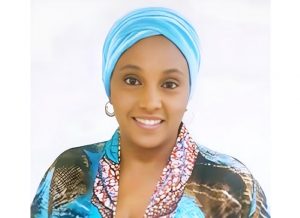Why are more young people getting sick with Covid-19 in Brazil?

She was alone when she passed away in a Rio de Janeiro Hospital — her mom, Maria da Penha da Silva Siqueira, thinks about that often.”It never crossed our mind that it would happen to her,” said da Silva Siqueira. “It was too fast. This virus does not let us say goodbye.”Da Silva, who left behind a 4-year-old son, died of Covid-19 in June of last year. At the time, hers was a slightly more unusual death.During the first part of Brazil’s struggle with the coronavirus, it was the elderly who made up the majority of those who were getting sick and dying from Covid-19.But since the new year, Brazil has descended into its worst days of this pandemic so far. Daily death and case numbers have shattered previous records.And amid that surge, a worrying pattern has emerged—more young people seem to be getting severely ill and dying from Covid-19, doctors tell CNN.The question is why: Is a new variant infecting more young people and making them sicker? Are young people behaving in ways that make them more likely to become infected? Could it be some combination of both?ICU doctors: Our patients keep getting youngerAcross the country, intensive care physicians keep saying the same thing: In this latest wave, their patients are younger than ever.”We have otherwise healthy patients that are between 30 and 50-years-old and that is the profile for the majority of patients,” said Dr. Pedro Archer, a 33 year-old intensive care physician at a public hospital in Rio de Janeiro. “That is the big differentiator in this latest wave.”CNN has spoken to nearly a dozen ICU physicians and nurses since mid-January, across multiple hospitals in several Brazilian states. Each said their ICU beds are filled with more young people than ever.”The numbers of serious infections are much higher than in the first wave,” said ICU Dr. Luan Matos de Menezes back in January, speaking to CNN near a public hospital in the Amazonian city of Manaus. “You can tell their conditions are much more critical.”Brazil’s Health Ministry publishes national statistics on the ages of Covid-19 victims. An AFP analysis of data from that ministry found the number of people aged 30-59 represented about 27% of Covid-19 deaths over the past three months or so — a 7% increase from pre-December numbers.The AFP also found the share of the death toll for those aged 60 and over fell by 7% in that same time period. CNN has not independently verified the analysis.State health officials in São Paulo, Brazil’s most populous state, said earlier this month that anecdotal testimony from doctors across the country about the severity of cases in younger people is backed up by their data.Officials said 60% of younger patients with Covid-19 needed ICU beds, a higher figure than earlier in the pandemic.For doctors, watching younger patients die is especially brutal.”Death for a person in their 30’s is very, very painful,” said Dr. Maria Dolores da Silva, a 42-year veteran of intensive care medicine in São Paulo. “They have their whole lives ahead of them and Covid takes it.”What’s to blame?The increase in both illness and death in younger people has coincided with the rise of at least one Covid-19 variant in Brazil.The so-called P.1 variant, which scientists say originated from Brazil, is widely agreed upon to be more easily transmissible, up to 2.2 times so according to a recent study.According to a March 4 study of eight Brazilian states by national health research institute Fiocruz, over half of all Covid-19 cases in six states were “associated with variants of concern” including P.1, as well as variants first identified in the UK and South Africa.First appearing at the end of last year, multiple doctors speculated the P1 variant has something to do with the shift in demographics among the sick. But it’s far too early to know what role exactly this variant is playing.”It’s possible that these new variants are more lethal but we don’t have scientific data to confirm that,” said Jesem Orellana, a Brazilian epidemiologist. “But what we do know is that the P.1 variant is more transmissible and that plays a big part in this second wave.”Experts also point to an increase in parties around the new year and Carnival holidays in the first part of the year. Younger people taking part in parties may simply have been more exposed as of late.Videos of illegal gatherings are very easy to find online and authorities in cities across the country are writing imposing fines and breaking up parties every single weekend.”You have a much more transmissible virus going around,” said Brazilian microbiologist Natalia Pasternak. “It’s going to infect more people, including more young people. [The surge] may just be an epidemiological effect of having so many more people infected at the same time.”And although Brazil’s vaccine rollout program has been plagued with delays, it is moving ahead slowly with the elderly as its priority. The more older people get vaccinated, experts say, the more skewed case and death numbers could be toward the young.It’s an effect that Maria da Penha da Silva Siqueira feels acutely nearly every day. It’s been nine months since she lost her daughter too young but sometimes, she says, it feels like yesterday.”When my grandson, her son, sees the stars, he says that she is there. This week, he told my sister that he wanted to visit heaven so he could see his mom.”Reporting contributed by Marcia Reverdosa and Eduardo Duwe.







